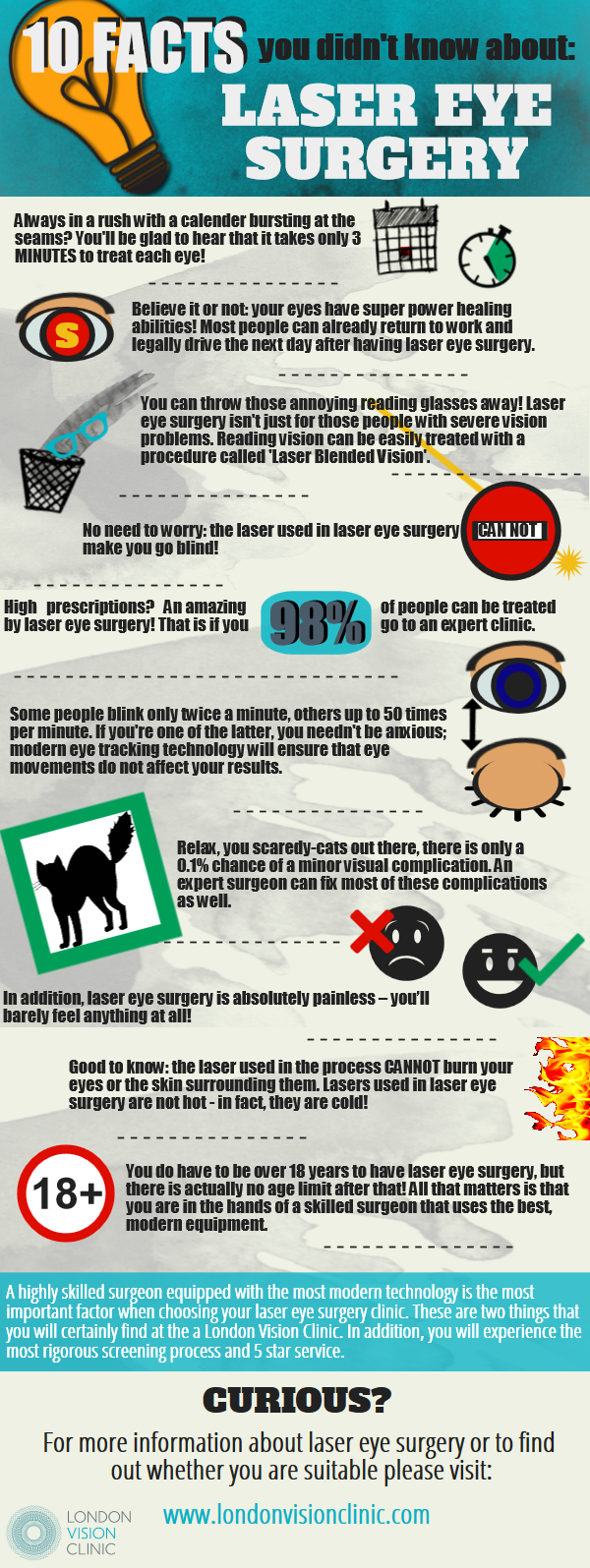If You Have Tried LASIK And You Are Not Satisfied With Your Vision, You Might Wish To Take Into Consideration Refractive Lens Exchange

Content author-Livingston Paul
This is a laser-free choice to LASIK that can be really beneficial for numerous patients.RLE is a lens replacement surgery that changes your eye's all-natural lens with a long lasting synthetic lens. This treatment can enhance your vision at near, intermediate and also distance.
1. Immediate Vision Renovation
Refractive Lens Exchange (RLE) is a highly efficient option to LASIK for individuals with presbyopia or modest to severe farsightedness. This lens substitute treatment requires the medical elimination of the all-natural lens and also the substitute with a synthetic intraocular lens.
This permanent lens is created to last the individual's life time and provides regular concentrating power that does not lower in time. This can be the only sensible choice for patients with presbyopia or higher degrees of farsightedness who might not be prospects for LASIK, PRK or phakic IOL surgical procedure.
After Refractive Lens Exchange, most people see prompt vision enhancement and can decrease their requirement for glasses or calls. The precise degree of this enhancement will depend upon the type of lens your doctor selects as well as the way of living you lead.
In the days following your RLE, you will likely experience some eye inflammation, which is a normal part of the healing process. If this redness ends up being painful or blurry, seek prompt treatment from your medical professional.
2. Much Less Risk of Cataracts
RLE is a popular refractive eye surgical procedure that can correct both myopia and hyperopia, along with presbyopia. Like Suggested Reading , it makes use of an intraocular lens (IOL) that changes the all-natural lens.
Contrasted to LASIK, RLE is less intrusive and does not have the very same risks that feature LASIK. The lens is implanted inside of the eye as opposed to outside, that makes it much less most likely for issues to create.
Additionally, the technology for IOLs is regularly improving. click here now can imitate bifocal or trifocal glasses, offering patients an exceptional range of vision.
An additional advantage of RLE over LASIK is that the lens can be replaced and also traded should the patient not adapt sideways impacts of a specific lens. This is particularly handy for those who are young but still have high degrees of nearsightedness or hyperopia, or those with poor vision however that do not have cataracts.
3. No Need for Reading Glasses
If you are a patient that has LASIK and are experiencing problem seeing nearby things plainly, Refractive Lens Exchange may be right for you. This treatment eliminates the natural lens and changes it with an artificial intraocular lens to improve vision and avoid cataracts.
Refractive Lens Exchange is additionally a choice for individuals who intend to get rid of the requirement for reading glasses after LASIK. This treatment is frequently made use of for clients with presbyopia (the requirement for checking out glasses after the age of 40) or higher degrees of farsightedness or nearsightedness, where LASIK can't supply sufficient adjustment.
The eye's all-natural lens adjustments and becomes thicker as well as harder as you get older, triggering presbyopia. This triggers a loss of capacity to focus on near things, which is why many individuals are called for to put on analysis glasses as they get older.
4. Much Shorter Recovery Period
LASIK healing durations are brief, and many clients experience a remarkable renovation in their vision right after surgical treatment. Nonetheless, recovery time can vary for each individual person.
Some LASIK individuals could experience a temporary period of blurred vision, halos or glow during the post-operative recovery process. These signs and symptoms will discolor gradually as the eyes accommodate to their new lenses.
Refractive Lens Exchange, or RLE, is a refractive surgical procedure that replaces the natural lens in the eye with an artificial intraocular lens (IOL). This treatment can correct serious refractive errors and minimize or eliminate the demand for glasses or call lenses.
Refractive Lens Exchange is slightly extra intrusive than laser-based refractive surgical treatments like LASIK and PRK, but it's a preferred option for clients wanting to lower or eliminate their dependancy on glasses as well as contacts. The procedure provides an extra individualized and comprehensive treatment, while making certain very little dangers as well as one of the most precise vision correction.

